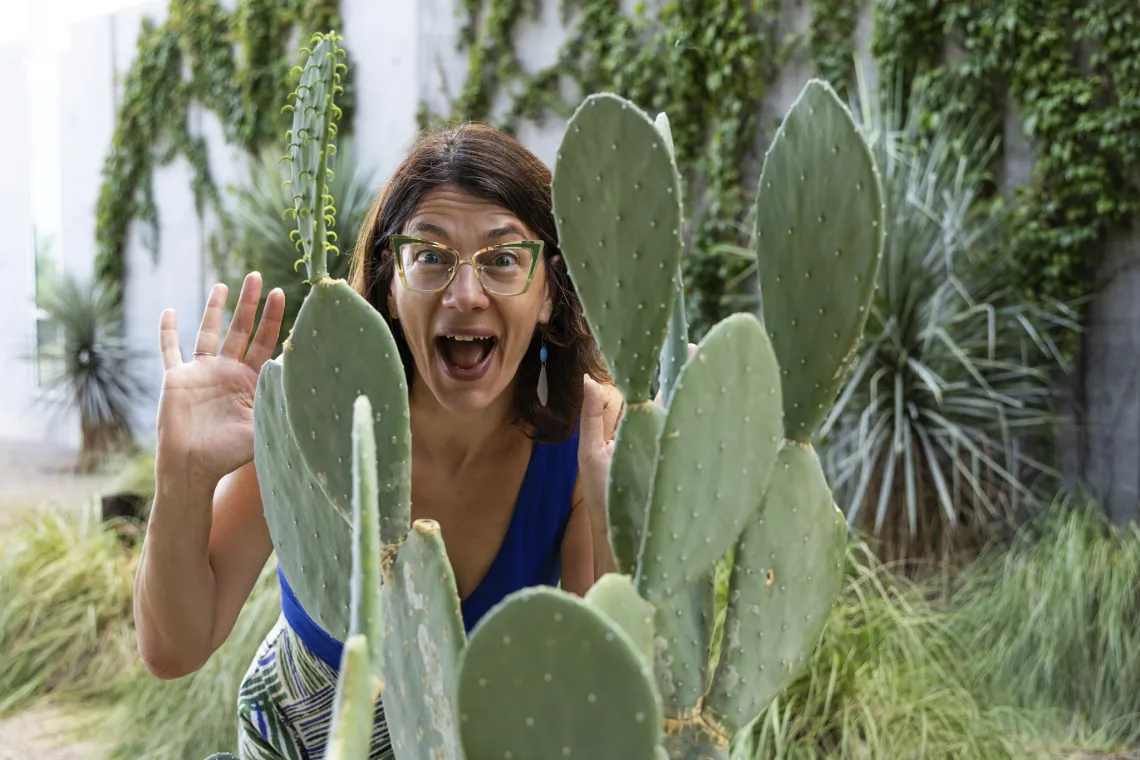Elise Gornish Appointed Director of the Desert Laboratory on Tumamoc Hill

Elise Gornish
Elise Gornish, an associate professor and extension specialist in the School of Natural Resources and the Environment under the College of Agriculture, Life and Environmental Sciences, has been appointed the new faculty director of the Arizona Institute for Resilience’s Desert Laboratory on Tumamoc Hill.
“I’m so excited by the incredible opportunity to lead the Desert Laboratory,” Gornish said. “The Laboratory retains long term archives of ecological, cultural, and anthropological data and artifacts, a treasure trove of resources for researchers in all disciplines.”
“I recognize and cherish Tumamoc Hill’s sacred significance to the Tohono O’odham Nation and other Native Nations,” Gornish observed, “I’m committed to partnering with all individuals and groups invested in protecting the inclusive future of this special place.”
A cooperative extension specialist in ecological restoration, Gornish’s research and outreach program focuses on restoration and management strategies of dryland vegetation that mitigate effects of climate change. She routinely works with individuals and organizations across Arizona to integrate research with education in restorative practices for both natural and agricultural landscapes.
“I am delighted that Elise will be bringing her incredible energy and experience to our team,” said Sharon Collinge, director of AIR. “Elise’s background in natural resources, her extensive practical experience in science education, and her leadership in coalescing partnerships for research, education, and resilience solutions make her the perfect fit for this important position.”
As director of the Desert Laboratory, Gornish will facilitate research and educational collaborations across the U of A campus with all those interested in exploring the unique ecological and anthropological landscape of Tumamoc Hill. She will also work to increase engagement with Tumamoc Hill recreators, the Tucson public, Native Nations and local community organizations.
Gornish’s commitment to equitable engagement and inclusive opportunities spans her work in cooperative extension and beyond. The Gornish Lab led AIR’s 2023-2024 Annual Resilience Theme Award project, The Art and Science of Drought Resilience Through Soil Health Initiatives, which brought together artists, gardeners, land managers, researchers, educators, and more to teach the high school students and the public about the relevance of healthy soil in their own lives, regardless of where they live or work.
Gornish also directs the Southern Arizona program Girls on outdoor Adventure for Leadership and Science, or GALS, a free science program for high school girls in Arizona that integrates outdoor education with place-based science learning.
Gornish looks forward to bringing more research groups to Tumamoc Hill as well as continuing public lectures and events, she said. “The Laboratory’s location on Tumamoc Hill, one of the most important cultural sites in the Western U.S., yields opportunities for science, artistry, contemplation, and time spent in nature for everyone.”

